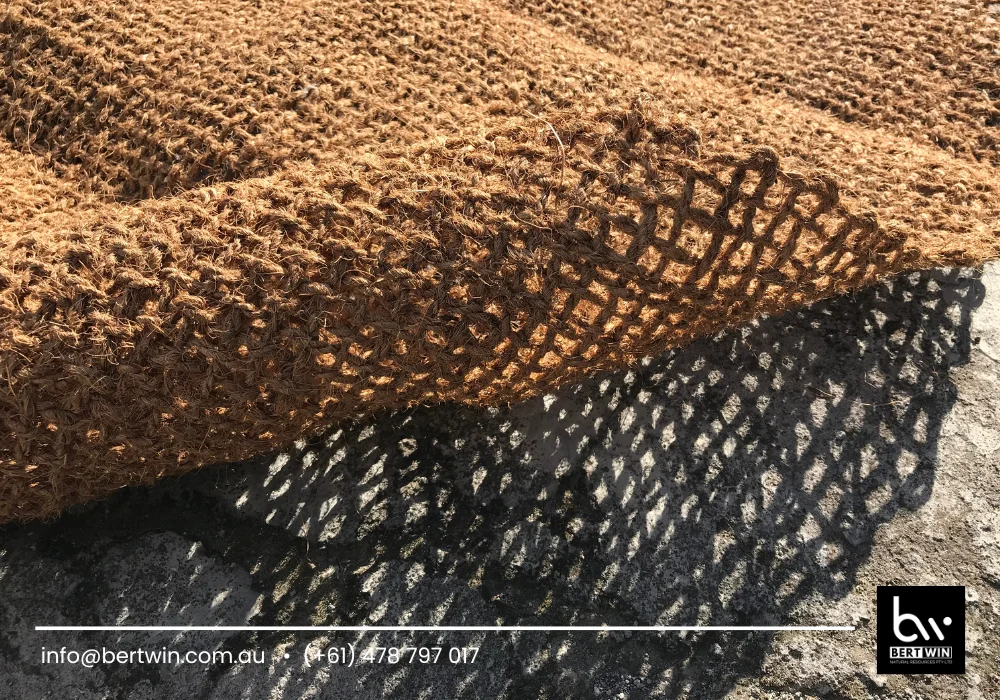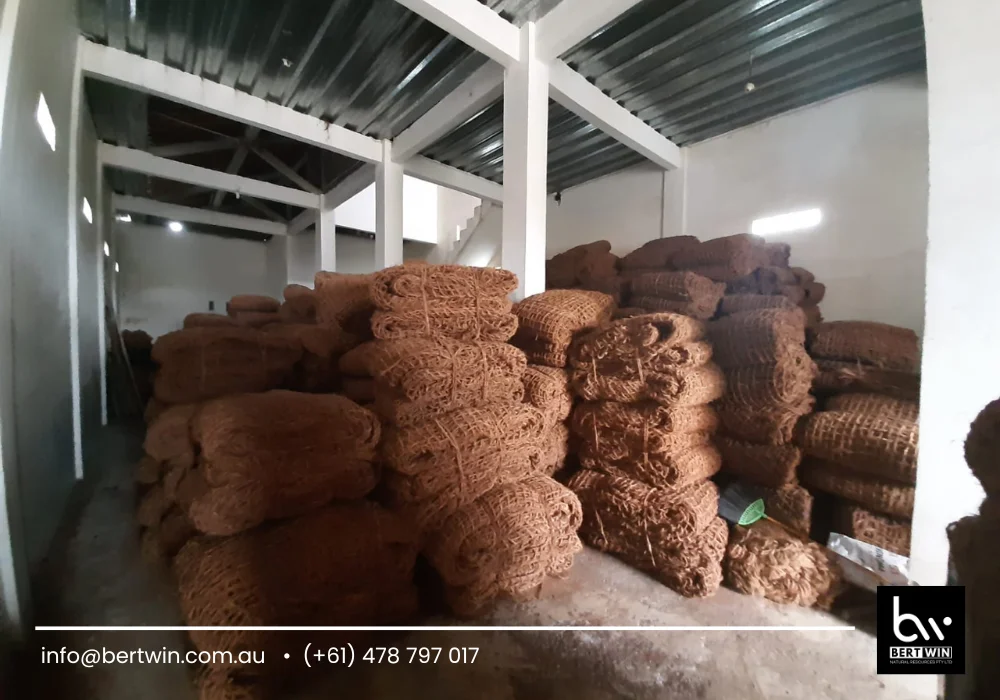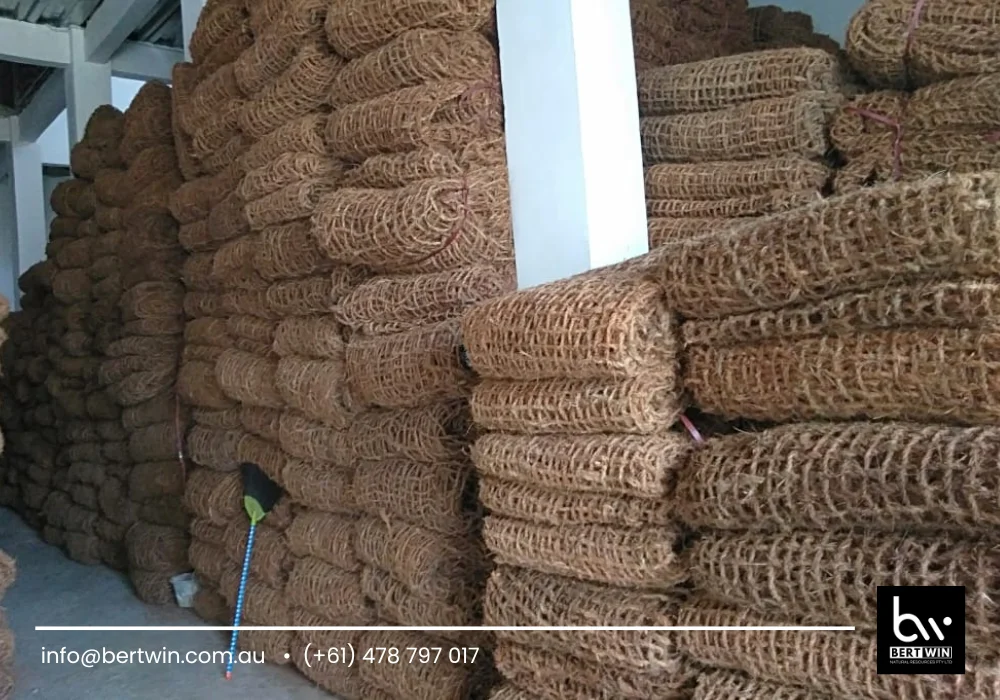The use of coco mesh is becoming increasingly popular in Australia due to its eco-friendly properties and versatile applications. Coco mesh, made from natural coconut husk fibers, is an environmentally friendly material used in various sectors, including agriculture, landscaping, and erosion control. In this article, we will explore the key uses of coco mesh in Australia and its benefits for both environmental and commercial applications.

What is Coco Mesh?
Coco mesh is a natural material created from the fibers of coconut husks, known as coir. The coir is processed and woven into a mesh-like structure that is lightweight yet strong, making it suitable for many different purposes. The use of coco mesh is particularly valuable in projects that require sustainable materials that have minimal environmental impact. As a biodegradable product, coco mesh breaks down over time, leaving behind a healthy and fertile environment for plants to thrive.
Understanding the use of coco mesh involves recognizing its diverse applications, which include soil erosion prevention, gardening, and even reforestation efforts. The following sections explore the various ways coco mesh is used in Australia and its advantages in different projects.
The Use of Coco Mesh in Erosion Control
1. Soil Stabilization
- Purpose: The primary use of coco mesh in erosion control is to stabilize soil in areas prone to erosion. In Australia, regions with coastal beaches, riverbanks, and agricultural land often experience significant soil erosion due to rainfall and wind.
- How it Works: The mesh is laid over the soil and anchored securely. It acts as a barrier, preventing the soil from being washed away during heavy rainfall or blown away by wind.
2. Encouraging Vegetation Growth
- Purpose: Coco mesh helps to stabilize the soil while allowing plant growth. Vegetation is encouraged to grow through the mesh, which further helps to secure the soil with their root systems.
- Sustainability: Over time, as plants grow and the coco mesh degrades, it improves soil quality and provides a lasting foundation for vegetation.
3. Biodegradability
- Advantage: Coco mesh is biodegradable, meaning it decomposes naturally, unlike plastic-based materials that remain in the environment for long periods. This makes it an ideal solution for environmentally conscious erosion control projects.
The Use of Coco Mesh in Landscaping and Gardening

1. Supporting Vertical Gardens
- Purpose: One of the popular uses of coco mesh in landscaping is for vertical gardening. Vertical gardens are a space-saving solution that has become increasingly popular in urban areas across Australia.
- How it Works: Coco mesh is mounted on walls or frames to support climbing plants and vines. The mesh provides a natural, eco-friendly base for the plants to grow on, reducing the need for synthetic materials.
2. Water Retention
- Purpose: Coco mesh can be used to line garden beds, helping to retain moisture and prevent water loss in areas with dry climates, like many parts of Australia.
- Benefit: It helps maintain a consistent moisture level in the soil, reducing the need for frequent watering and ensuring healthy plant growth, especially in drought-prone areas.
3. Prevention of Soil Erosion
- Purpose: Coco mesh is used in landscaping to prevent soil erosion, particularly in sloped areas or regions that experience heavy rainfall.
- How it Works: When placed in garden beds or along retaining walls, coco mesh holds the soil in place and reduces the risk of erosion, ensuring that plants remain rooted and the soil stays intact.
The Use of Coco Mesh in Reforestation Projects
1. Protecting New Plantings
- Purpose: Coco mesh is widely used in reforestation efforts to protect young saplings from erosion and environmental stress. In Australia, it is often used in areas where vegetation has been cleared due to wildfires, deforestation, or mining.
- How it Works: The mesh is placed over the planted area to prevent soil erosion, while also providing support for the young plants as they establish their roots.
2. Promoting Soil Fertility
- Benefit: As the coco mesh decomposes, it enriches the soil, promoting the growth of healthy plants and contributing to long-term soil fertility.
- Sustainability: This makes coco mesh an excellent choice for large-scale reforestation projects, ensuring that plants have the necessary resources to thrive while helping restore natural ecosystems.
3. Ease of Use
- Application: Coco mesh is easy to transport and install in reforestation areas, especially in remote or hard-to-reach locations where other erosion control methods may be more challenging to implement.
The Benefits of Using Coco Mesh

1. Eco-Friendly Material
- Sustainability: Coco mesh is made from renewable coconut husks, making it an environmentally friendly alternative to synthetic materials like plastic. It is biodegradable, contributing to the reduction of long-lasting waste in the environment.
2. Durability
- Weather Resistance: Despite being biodegradable, coco mesh is durable and weather-resistant, capable of withstanding harsh Australian conditions, such as high winds, heavy rain, and extreme heat. It typically lasts between 6 months and 1 year in outdoor applications before decomposing.
3. Cost-Effective
- Affordability: Coco mesh is an affordable option for erosion control, gardening, and reforestation projects. Its low cost makes it accessible for both large-scale commercial projects and small personal gardening endeavors.
4. Versatility
- Multiple Applications: The use of coco mesh extends beyond erosion control and gardening. It can also be used in applications like green roofs, wildlife habitat creation, and even in agricultural projects for crop protection.
Conclusion
The use of coco mesh is a practical and sustainable solution for many environmental challenges in Australia. Whether for erosion control, landscaping, gardening, or reforestation, coco mesh provides an eco-friendly alternative to synthetic materials while offering several benefits such as soil stabilization, water retention, and plant support. As awareness of sustainability continues to grow, coco mesh is becoming an essential tool for those looking to contribute to environmental conservation efforts in Australia.
For further information, you may contact WhatsApp at (+61) 478797017 or via email at info@bertwin.com.au.
